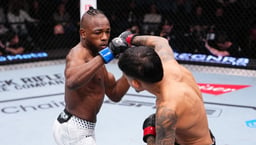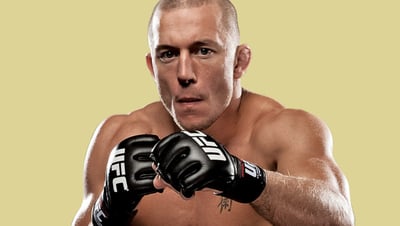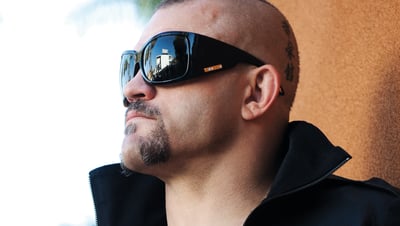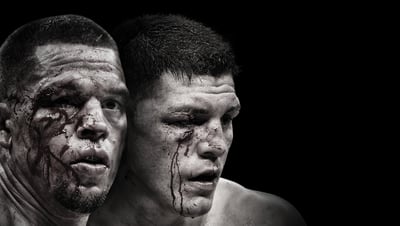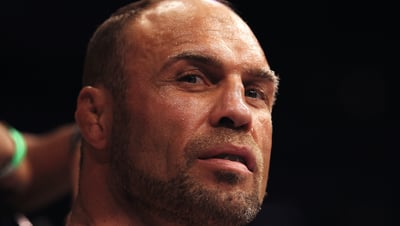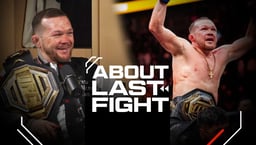
issue 218
May 2025
Ray Klerck disassembles the emotional engine of MMA marketing to show how brands win big when they stop selling products and start selling fighters’ personalities.
For brands and marketers, MMA is a credibility factory, because advertising plans that involve logos on trunks could be 2005 thinking. That’s the core takeaway from two 2025 studies that outlined how fans are more likely to connect with fighters, and brands ride that emotional wave. The first, by Dr. Jingxuan Zheng at the University of Alberta, shows how MMA’s mainstream breakout wasn’t powered by regulatory relaxation, but by emotional buy-ins where fans were moved by fighters’ narratives. Zheng’s research confirms that emotional legitimation wasn’t a side note in MMA’s rise. Instead, it was central to the institutional work that made the sport acceptable. Pro-MMA stakeholders had to confront and reshape public emotion before legitimacy could stick. To overcome stigma and achieve acceptance, promoters had to reshape how fans and stakeholders felt, not just what they knew. Meanwhile, the other research published in The International Journal of Sports Marketing and Sponsorship by Szymkowiak et al. adds that a fan’s emotional connection to a fighter directly improves their perception of sponsors, belief in product quality, and likelihood to buy. The researchers found that positive attitudes toward an MMA fighter mediate and amplify sponsor credibility. Think of it as brand osmosis. You don’t just wear a fighter’s shirt. You wear their story. And if a brand is woven into that story, it becomes part of the fan’s personal identity. That’s how the limited-edition Stylebender tee vanished before you could click refresh.
CELEBRITY IS THE ENTIRE BUSINESS MODEL
The traditional sponsorship playbook is slowly getting rewired. In old-school sport marketing, brands chased legitimacy through rules, leagues, and governing endorsements. In MMA, those things almost came last. Instead, Zheng introduces the idea of “categorical celebrity” as an alternative to traditional legitimacy. In MMA’s early days, fame and media attention drew sponsors and fans. This was true even when the sport was still banned or stigmatized. Fighters don’t just represent themselves anymore. They symbolize the entire sport’s credibility. The moment fans emotionally connect with someone like Valentina Shevchenko, their faith in the athlete bleeds into whatever that athlete touches. That’s why Dustin Poirier’s alignment with Celsius doesn’t feel like an ad. It’s almost like a shared training mindset. And The International Journal of Sports Marketing and Sponsorship study backs this up. When fans trust the fighter, they rate the brand higher, believe the product performs better, and say they’re more likely to buy. In that sense, marketing isn’t about exposure. It’s about transfer. The fighter assigns emotional legitimacy, product trust, and cultural alignment to the brand. It’s less of a celebrity endorsement and almost like a chemical reaction. And if your brand isn’t built to handle that level of meaning, it is likely to fade.
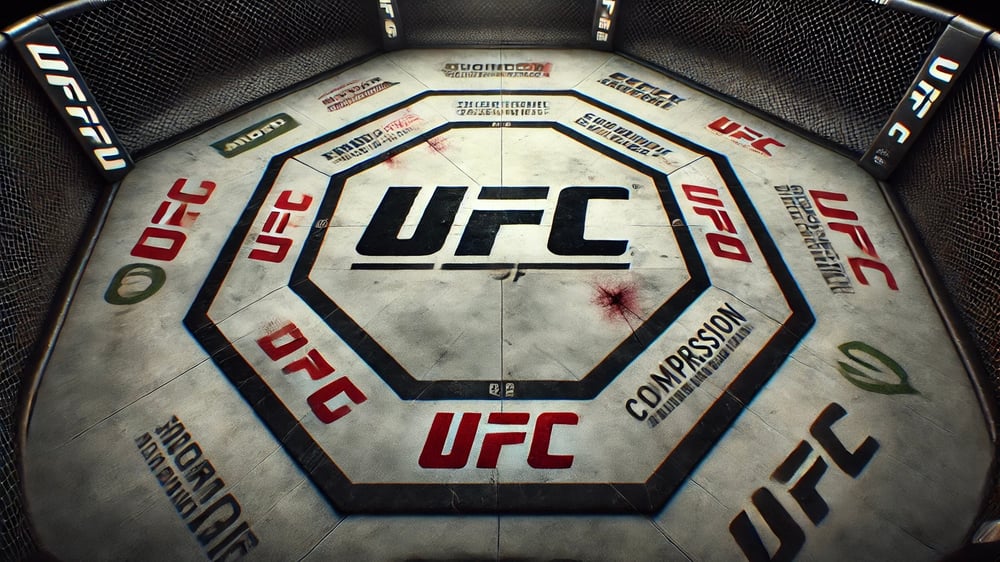
ATTITUDES DRIVE ACTION
The brilliance of Szymkowiak’s research is that it reveals what fans are actually responding to, and it’s not meaningless logos. Their survey of 459 U.S. participants showed that MMA audiences hold extreme attitudes toward the sport, potentially more polarized than any other sports fan. And that emotional volatility? It means the highs are very high. When fans love a fighter, it’s not casual. They truly identify with them. So when that fighter reps a brand, the fans really get on board. This is where long-term partnerships shine. Israel Adesanya’s enduring partnership with Engage shows how gear becomes mythologized when it’s present at every iconic moment. From a sponsorship strategy perspective, Zheng and Szymkowiak both agree that brands need to embed themselves in the narrative, not orbit around it. Don’t show up on fight week. Show up for the camp, the comeback, the crisis, the climb. This is attitude-based marketing, not performance-based advertising. Fans don’t want flash. They want fidelity.
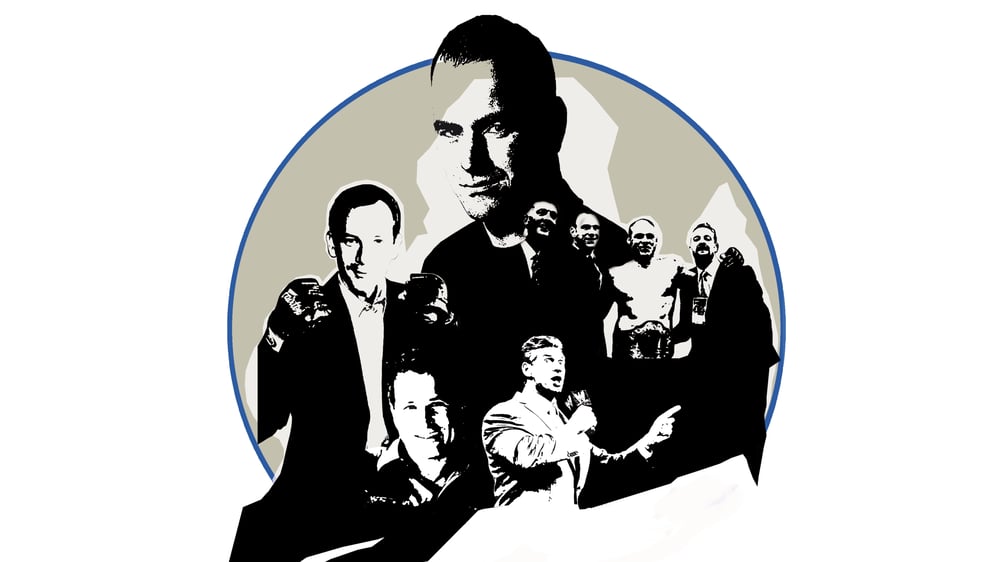
YOUR SPONSORSHIP PLAYBOOK
So here’s your no-BS Fighters Only sponsorship playbook, stitched together from Zheng’s narrative science and Szymkowiak’s attitude-to-purchase chain reaction. Think of it as corner advice for brands that don’t want to get KO’d by lazy marketing. Rule one: pick fighters with depth. Not just highlight reels. Look for the ones with scars, backstories, and weird fan tattoos. The kind of fighters who walk out with a chip on their shoulder and a family photo in their glove. Think Jan Błachowicz’s second-chance stoicism or Pantoja’s slow-burn rise. Those are loyalty goldmines. Second: get in early, exit never. Don’t wait for the belt. If you weren’t there when they were doing interviews in front of a busted fan and a jiu-jitsu mat that smelled like despair, don’t expect fans to care when your logo shows up on the win bonus. Third: match your values, not your metrics. You’re not buying impressions, you’re borrowing character. So don’t put your sleek, premium, nerd-coded product next to a brawler who thinks sleep is for the weak. That’s just bad matchmaking. Fourth: tell the whole damn story. Not just the weigh-in flex and the post-fight cry. Be there in the cut, in the camp, in the comeback. Fans buy gear when it feels like part of the war chest. And fifth? Understand your fighter’s archetype. This is less about their stats and more about their soul. Are they the samurai? The outlaw? The underdog with seven jobs and a dream? Nail that vibe, and your product becomes more myth than merch. That’s how you stop being a sponsor and start being part of the legend.
BRAND LOYALTY ISN’T EARNED - IT’S TRANSFERRED
Zheng and Szymkowiak give us somewhat of a scientific explanation for why some brands thrive and others just, well, just kind of exist. Emotion. Identity. Embedded storytelling. These are strategies. Fight fans and businesses don’t need more fluff about “reaching Gen Z” or “tapping into authenticity.” They need a new north star, where branding becomes biography. To them, product drops should feel like fight night rituals. And where emotional allegiance to a fighter becomes the reason a fan picks up your product, not a promo code. Sponsorship isn’t just space on a walkout tee. It’s space in the heart of a fan who’s already chosen a side.
...


